Groundbreaking Workshop on AI and Technology-Facilitated Gender-Based Violence at AWiM24
Trending
Friday May 30, 2025
Trending
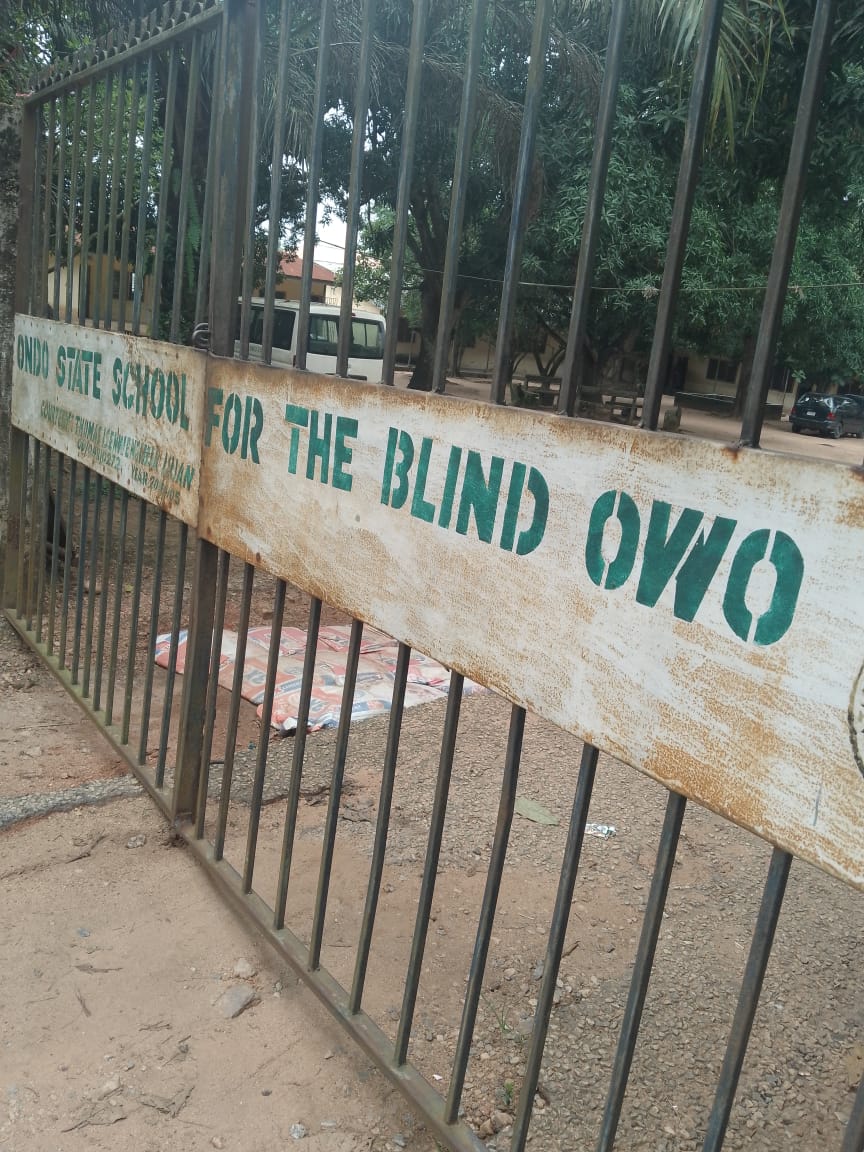
Gbemisola Okotie is the last child in a family of seven. The 19-year-old who had been battling total blindness since 2014 said she did not have it easy when she lost her sight.
“It was like a dream’ she explained. Her parents left her indoors for years before she was admitted into the Ondo State School for the Visually Impaired, in the city of Owo, Ondo State, South-west Nigeria.

Street view of the School for the Visually Impaired, Owo, Ondo State, South-West Nigeria
‘Girls living with visual impairment suffer a sense of isolation and rejection .They find it difficult navigating through daily activities’ , said Gbemisola.
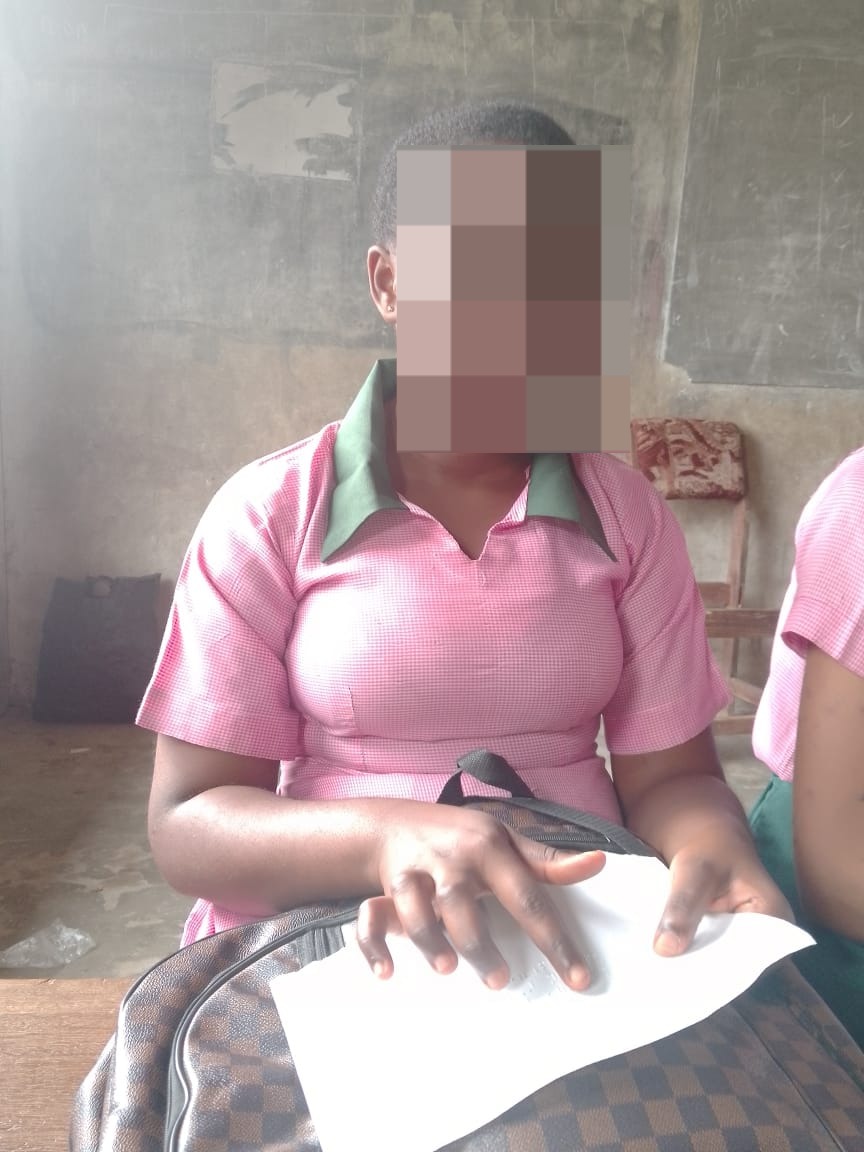
Photo Credit: Olufisoye Adenitan
A study conducted by the Investigative and Ophthalmological Visual Science, shows that more than four million adults within 40 years of age in Nigeria have moderate or Standard Visual Impairment or blindness. About one million adults with blindness in Nigeria require urgent attention, while the additional three million who have severe and moderate Visual Impairment, require eye care services.
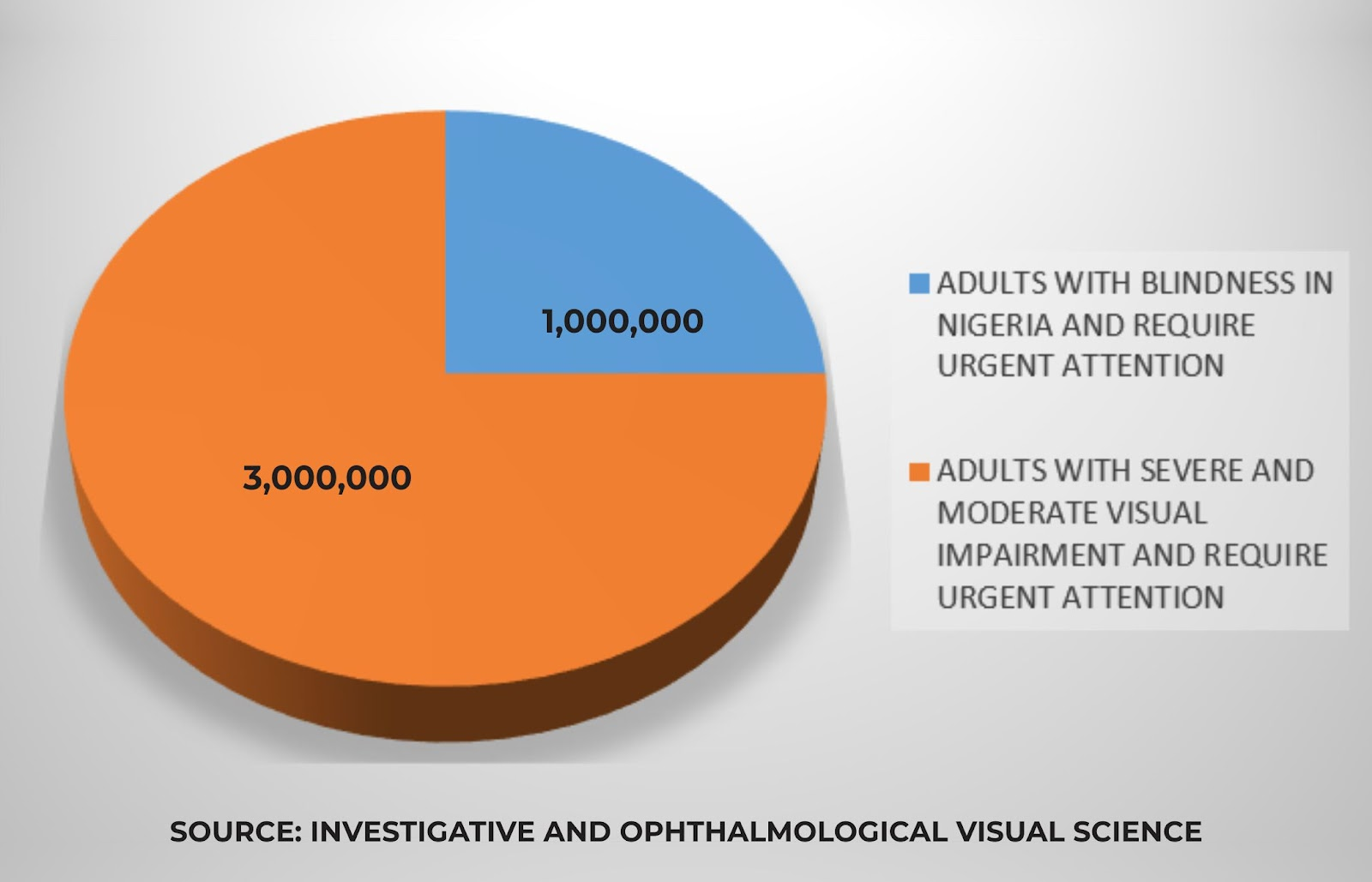
This underscores the need for improved eye care services in the Country.
One of the major problems people living with disabilities face in the country is lack of information. From the stories of Gbemisola and other girls, they complained to their parents for years about the pain in their eyesight until the condition deteriorated from partial to total blindness. From the ages of some of the girls in this report who are between 19 and 20, it is obvious that they have grown past the ages of their peers in secondary schools. This is because they were confined at home for too long by their parents and guardians. Most of them got to learn about the special schools late
When Gbemisola first got to the school, she did not find it easy to settle in at first. She said the school did not treat people with disabilities different from the way people without disabilities were treated. They had to do their chores and everything like students with eyesight. ” There is a sense of rejection by society, even loved ones. But despite our blindness, girls with visual impairment struggle to fetch water from the well, sweep the hostel, and then clean the toilets” she said
The Ondo State School for the Blind was established in February 1978 to cater to the educational needs of visually impaired students in the region. Others like the School for the physically challenged in Ikare Akoko, School for the Deaf in Akure and the school for the Intellectually impaired, in Ile Oluji Oke-Igbo, all in Ondo state, South-west Nigeria, were established in response to the need for adequate education and support for communities with people living with disabilities across the state.
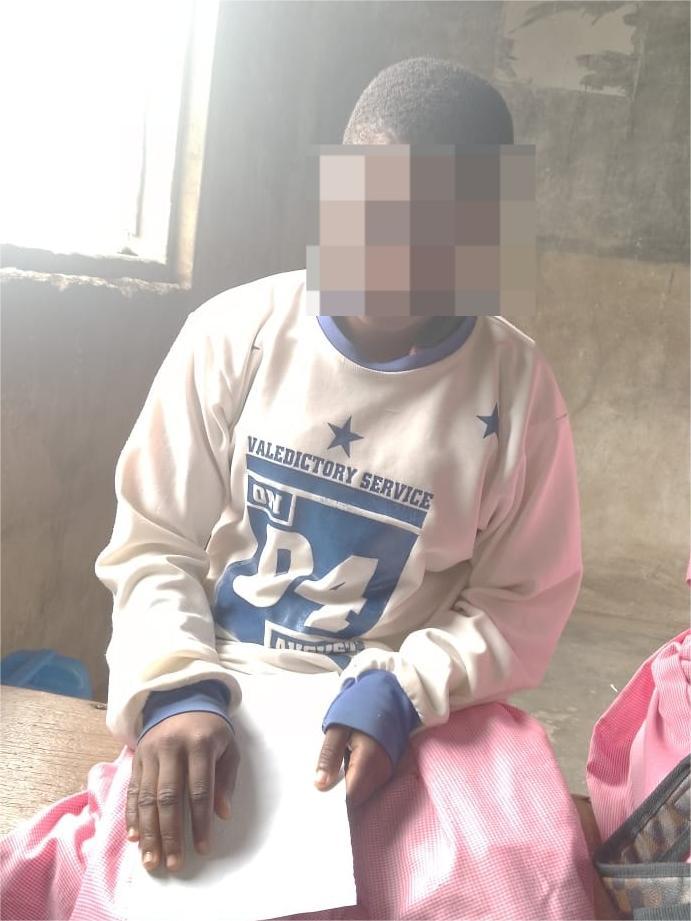
Photo Credit: Olufisoye Adenitan
Staying isolated in one of the classrooms, 20-year-old Modupe Ijamakinwa warmed up to AWiM News correspondent when she the Owo High School, Ondo state Southwest Nigeria, where students of the secondary section of the school for the blind were receiving lectures in the special education unit of the school.
“I lost my sight in 2019, after writing my junior class examination, my world crumbled in my face’’ Modupe also recounted how men sexually harassed her, ’Men requested for my phone number and when I turned them down, they body shamed me anytime I passed by with my little sister until my parents eventually took me to the school for the blind Owo’’
Research done by the Africa polling institute, API an independent think-tank in September 2022 had 64 per cent of respondents in its survey saying women with disabilities are more vulnerable to sexual abuse than women without disabilities irrespective of age and educational levels.
The survey showed that about 28 per cent of Nigerian women with disabilities have suffered sexual abuse, 11 per cent of men living with disabilities have also suffered some form of sexual abuse. The research was conducted with support from the Ford Foundation to monitor progress on the domestication of “the Discrimination against Persons with Disabilities (Prohibition), Act, 2018 in the 36 states of the federation and the Federal Capital Territory (FCT).
It sad to note that abusers and sexual predators, find it easier to prey on seemingly helpless women who may not be able defend themselves. Data from a journal known as Equality Now shows that 40 to 60 percent of girls with disabilities experience sexual violence before age 18 and especially vulnerable are girls with mental disabilities. What role does the government play in ensuring that the rights of women and girls living with disabilities are protected by law?
PSYCHOLOGICAL IMPACT OF GBV ON PWDs
Dr Aina Oyekanmi, the Chief Consultant of the Federal Neuro-Psychiatric Hospital, Aro, Abeokuta, said sexual abuse on girls with blindness is quite traumatic for them. Dr Oyekanmi suggested that persons with disability should be adequately cared for and their caregivers need to be properly educated to know the difference between abuse and training in the school environment. “Persons with disability live a lonely life, rejection, limited access to resources, lesser employment opportunities, social discrimination, mental distress, and psycho disorder, all this may lead to a high level of depression, so in the school environment, what they need is love and support, not abuse”. Dr Oyekanmi said.
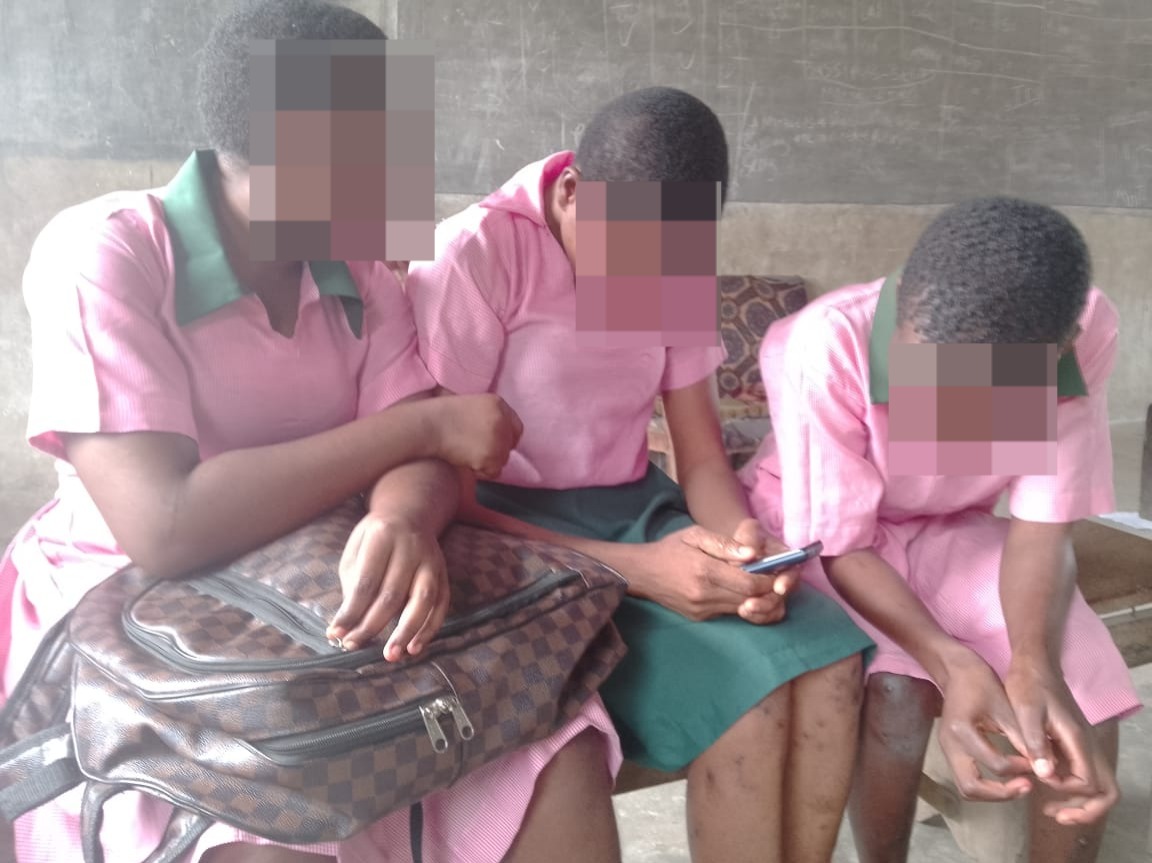
Photo Credit: Olufisoye Adenitan
Ewa Emmanuel, the past chairman of the Joint Association of Persons with Disability, JONAPWD, said that it is an offence, for PWDs to be maltreated in a school environment where they are supposed to be cared for and protected.
“I think the teachers need more education on how to handle persons with disabilities, it is unfair to treat our daughters like outcasts in the name of discipline”. Emmanuel said
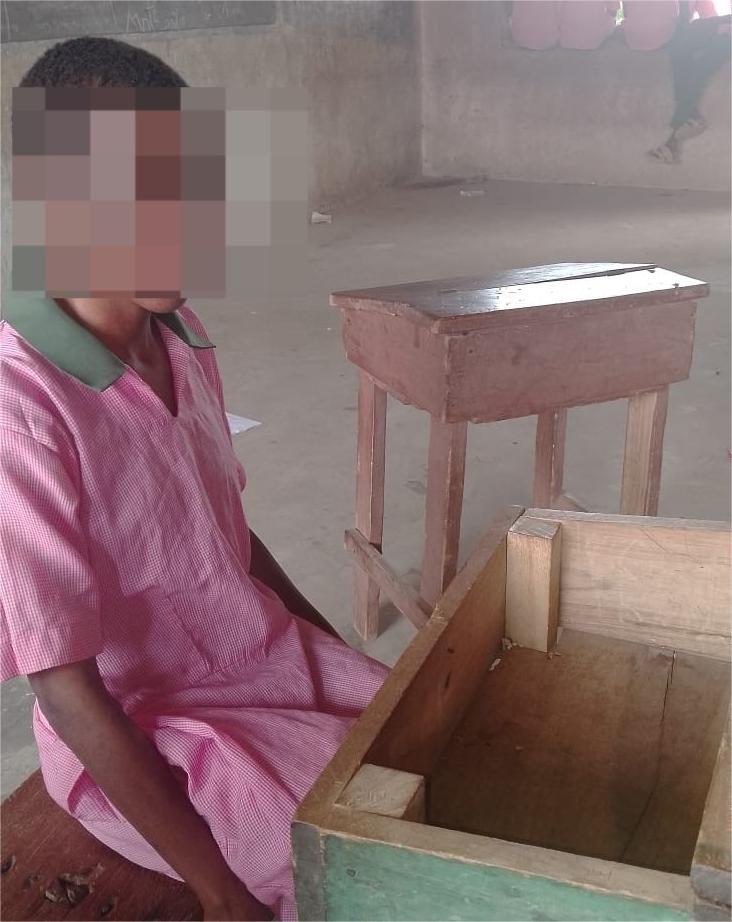 19 –year- old Ajibade Adeola, is another vibrant young girl living with disability. She comes off as a no-nonsense young woman. She defended other girls by disallowing boys without disabilities from having access to the class where the girls with disabilities chose to sit. Since then, Adeola became blind in 2018 and has made peace with the fact that she may never see with her eyes again. “As a blind girl, I went through emotional crises, because society sees us as burdens and liabilities’ she said. “When we complain of any ill-treatment the next thing would be punishment from the head teacher, recently we were asked to cut grass and pack sand ‘’ she said
19 –year- old Ajibade Adeola, is another vibrant young girl living with disability. She comes off as a no-nonsense young woman. She defended other girls by disallowing boys without disabilities from having access to the class where the girls with disabilities chose to sit. Since then, Adeola became blind in 2018 and has made peace with the fact that she may never see with her eyes again. “As a blind girl, I went through emotional crises, because society sees us as burdens and liabilities’ she said. “When we complain of any ill-treatment the next thing would be punishment from the head teacher, recently we were asked to cut grass and pack sand ‘’ she said
To further investigate these allegations, AWiM News went to the school for the blind, Ikare Road, Owo South-West Nigeria. Arriving at the school there was no signpost for identification. After exchanging pleasantries with the acting school head teacher, Mrs. Mary Ogunbadeniyi, who thought she was meeting with a representative of a non-governmental organisation, we got down to the basics. The head teacher gave a tour of the school, and especially the boys’ and girls’ accommodation to see the level of the decay in the school’s infrastructure
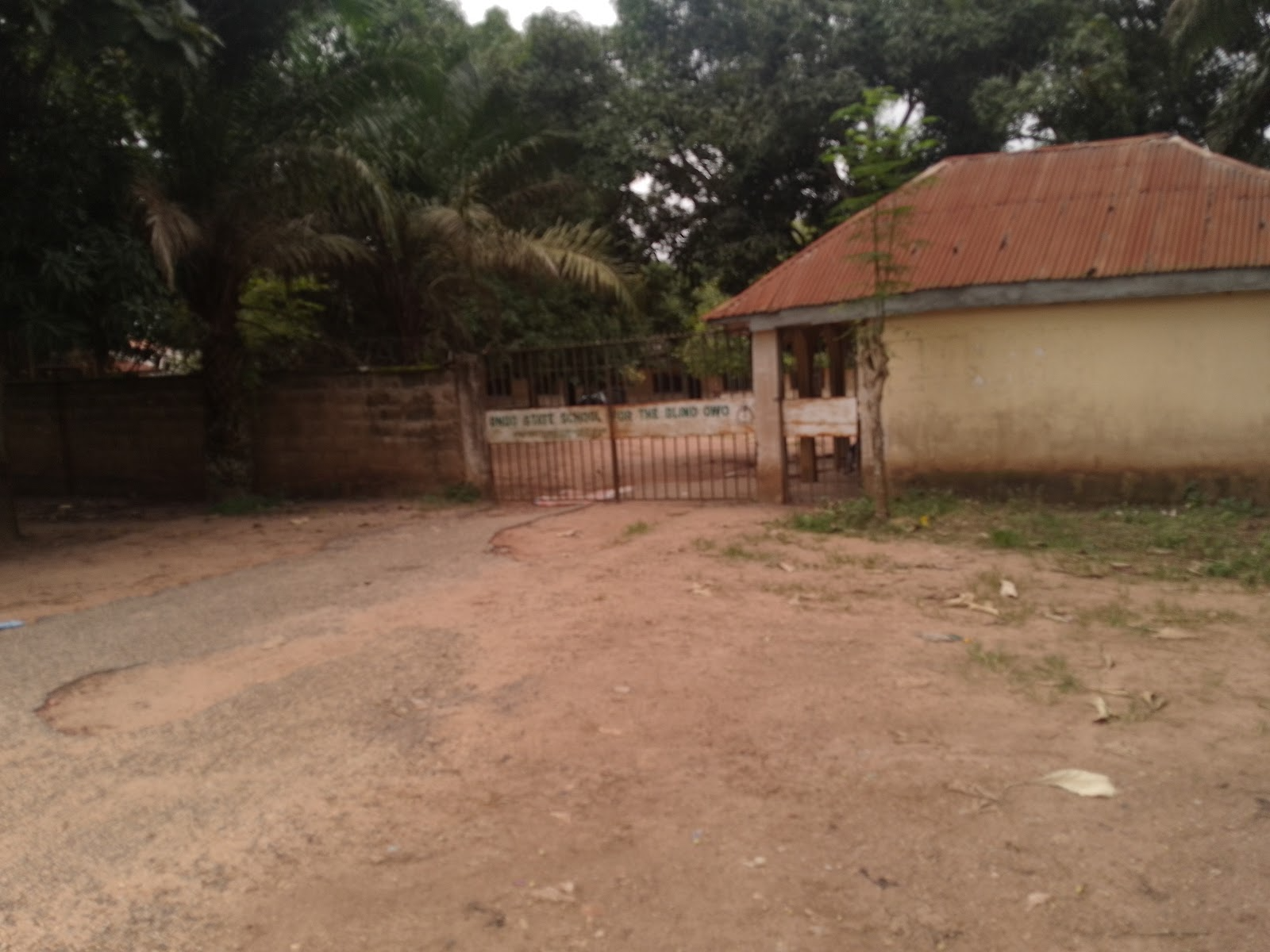
Photo Credit: Olufisoye Adenitan
Inquiring about the welfare of the students, she denied the allegation that visually impaired students were forced to cut grass, stating that they were just being trained for the future.
’We are training them,” she said. ‘’Many teachers are blind here and they have two farms, and if they do not have the training how will that happen.”
In a conversation with the Ondo State Agency for persons with disabilities, the State board chairperson, Mrs. Folasade Arise, said the government was making more efforts to ensure the school was conducive enough for learning in terms of infrastructure, food, and care for their general well-being.
“This agency ensures the rights of persons with disabilities, we have four clusters under this board, and we jealously protect their rights against any abuse,” said Mrs Arise.
VAPP LAW TRANSCRIBED TO BRAILLE
In 2023, the Ondo State Government, in conjunction with Westminster Foundation for Democracy yesterday launched the braille version of the Violence Against Persons Prohibition law to enable those living with Visual impairment have access to the law and protect them as many of them face several human rights abuses including stigma, discrimination, and sexual violence
The VAPP law prohibits discrimination based on disability and imposes sanctions including fines and prison sentences on those who contravene it, so translating the law into Braille will enable PWDs understand the content of the law, because it is meant to be an instrument to seek justice.
Barrister Bolanle Afolabi, Executive Secretary, Ondo State Agency Against Gender-Based Violence (OSAA-GBV), said the translating the VAPP Act to Braille, has enhanced the sensitisation program already started by her agency,’ the VAPP law exists to protect everybody, including People living with disabilities.’’
According to data provided by the Ondo state agency against gender-based violence, there has been a spike in cases of sexual violence in the past few months. In 2022 alone, there were about 462 reported cases while recently about 405 cases of gender-based violence were reported and treated
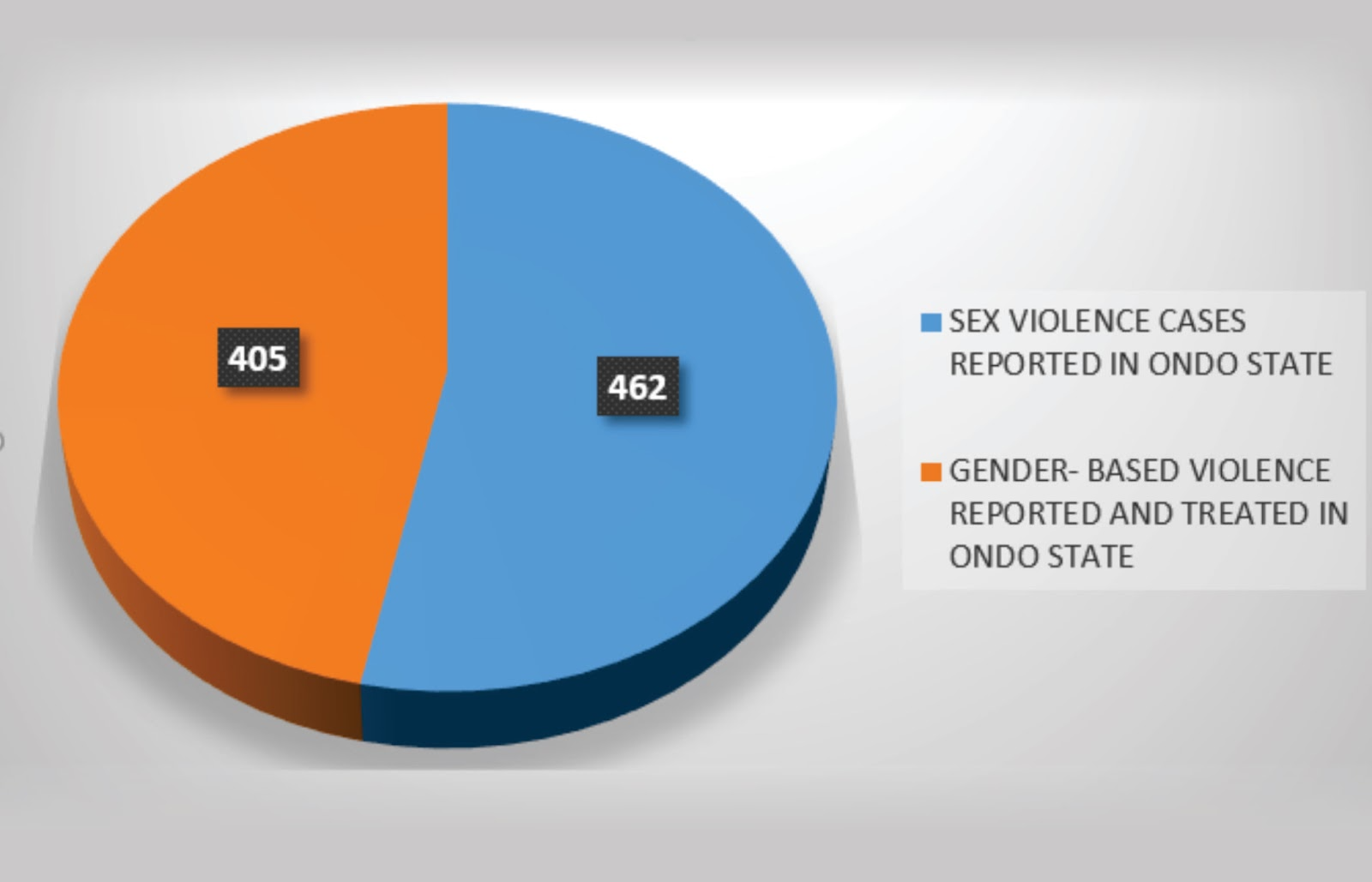
WAY FORWARD
Disability Advocate and the Executive Director of Kids and Teens Resource Centre, Ondo state Southwest Nigeria, Mrs. Folasade Bamigboye , said there is a need for more education and advocacy for persons with disability, the blind community. “Even after the law against persons with disabilities Act was passed in 2018, there’s still no access to Information, survivors need to know their rights and have access to services and legal aids” Bamigboye stated. Mrs Bamigboye, reacting to the school mandating them to cut grass despite their blindness, condemned the act and described the treatment as unfair: “they may think they are promoting skills building but it is wrong to engage them like this and the teachers need to understand the dangers in child labor’’ Bamgboye emphasised the need for training in inclusive education and how to work with the students in order not to subject them to hard labor.
Editor’s Note: The names of the survivors have been altered in this report for their security.
This story is part of the African Women in Media (AWiM) ‘Reporting Violence Against Women and Girls’ project,’ supported by the Wole Soyinka Centre for Investigative Journalism
We’re not gonna spam. We’ll try at least.

Copyright 2020. African Women In Media
Copyright 2020. African Women In Media
Recent Comments